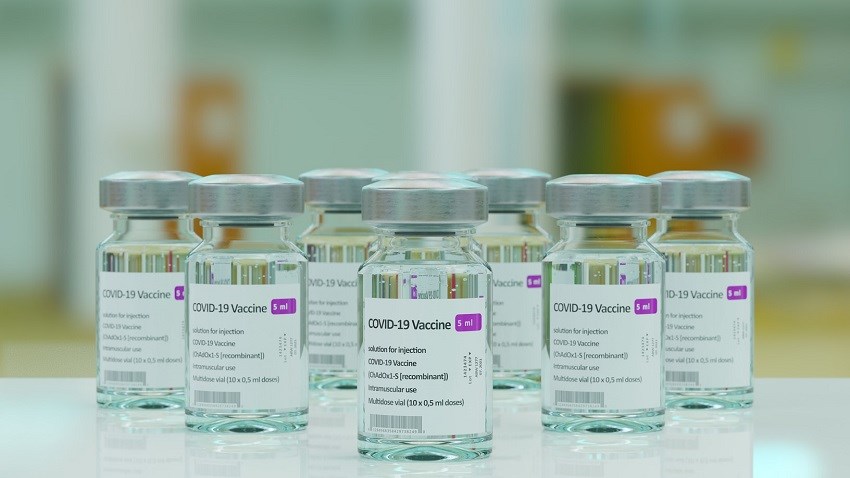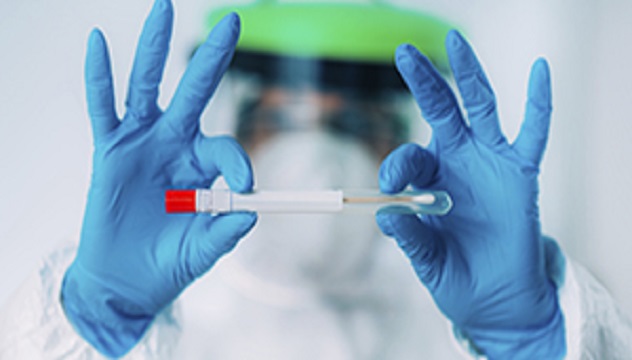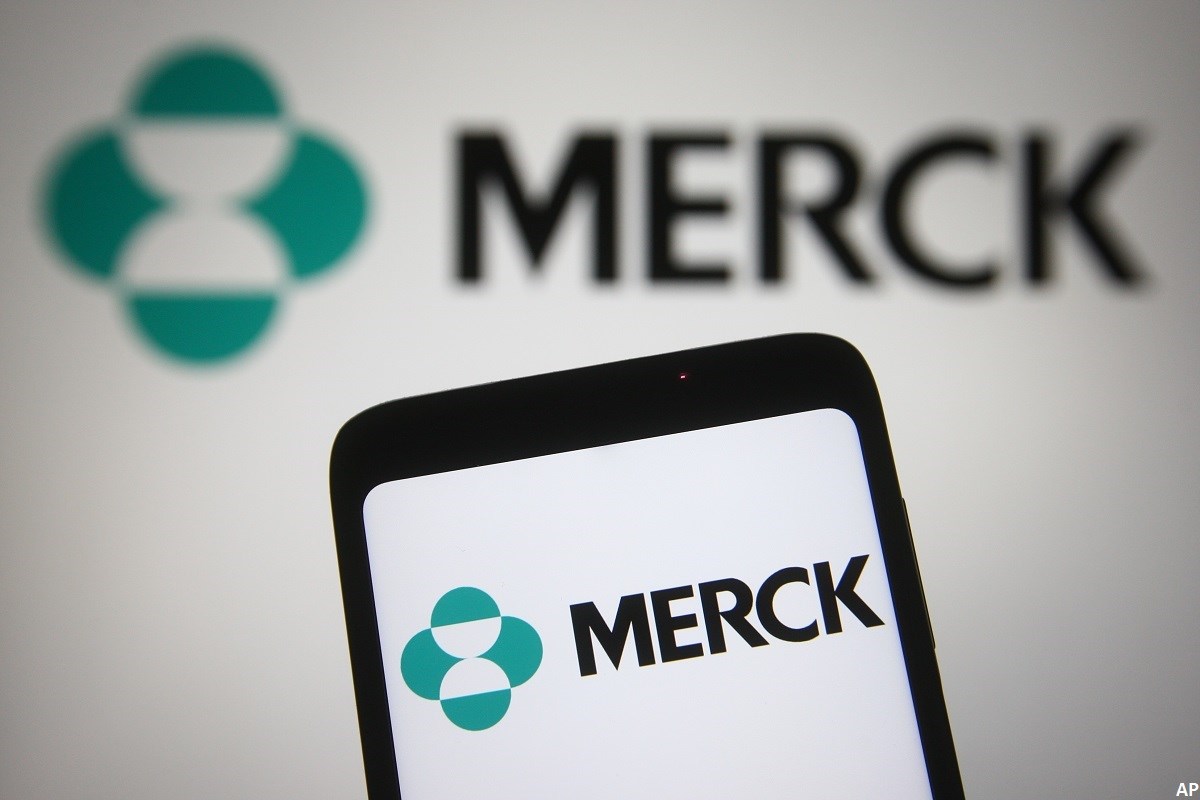
The global stock markets plummeted precipitously on Friday as growing fears over the highly mutated South African COVID-19 variant triggered a panic selling. The Dow’s 905-point crash was the worst in over a year in response to the World Health Organization declaring the new variant, Omicron, a 'variant of concern’.
While the broader equities market took a beating, stocks of vaccine makers saw a spike as investors ploughed into select drugmakers in hopes that these companies would be able to develop a drug that could offer protection against the new variant.
The following players have established their market dominance with effective vaccines that have helped stem the global spread of COVID-19 and made economic recovery possible. These companies have deep research capabilities and established credentials in rapid vaccine development which positions them well to benefit from growth in demand for their therapies for the foreseeable future.
|
Pfizer Inc |
||
|
Ticker |
||
|
Current yield: |
2.89% |
|
|
Forward P/E: |
11.34 |
|
|
Price |
US$54 |
|
|
Fair value: |
US$45.50 |
|
|
Value |
19% Premium |
|
|
Moat |
Wide |
|
|
Moat Trend |
Stable |
|
|
Star rating |
** |
|
|
Data as of Nov 29, 2021 |
||
One of the world's largest pharmaceutical firms, Pfizer (PFE) leads the global fight against COVID-19 with its mRNA vaccine. The U.S. pharma giant’s portfolio comprises healthcare products and chemicals. The drugmaker also sells treatments for cancer, pneumococcal and cardiovascular diseases. It derives 50% of its total sales internationally, primarily from emerging markets.
Pfizer has been by far the most successful of all vaccines makers in selling its mRNA COVID-19 vaccine, snagged multimillion-dollar and multi-year deals from several governments around the globe. The vaccine’s safety and efficacy helped contain the spread of the virus and some of its mutated variants and spur economic recovery.
Even if Pfizer’s current vaccine fails to offer sufficient protection against the South African variant, the company is well-positioned to come up with an effective vaccine against it in a relatively short period.
Pfizer recently announced US$5.3 billion supply deal with the U.S. government for its COVID-19 oral treatment Paxlovid combined with likely additional deals. “The exceptional speed to market with a highly efficacious oral treatment showcases Pfizer’s innovative power that reinforces the firm’s wide moat,” says a Morningstar equity report.
There is an expectation of additional deals to follow in other developed markets. “We expect close to US$8 billion of sales to countries outside the U.S. through the next year,” says Morningstar sector director Damien Conover, adding that “if COVID-19 variants persist, the drug’s tail could have greater impact to the firm’s valuation.”
Pfizer should gain a solid windfall from Paxlovid sales, forecasts Conover, who recently raised the stock’s fair value from US$44 to US$45.50.
|
Moderna Inc |
||
|
Ticker |
||
|
Current yield: |
- |
|
|
Forward P/E: |
13.62 |
|
|
Price |
US$352.92 |
|
|
Fair value: |
US$159 |
|
|
Value |
107% premium |
|
|
Moat |
None |
|
|
Moat Trend |
Positive |
|
|
Star rating |
* |
|
|
Data as of Nov 29, 2021 |
||
American biotech heavyweight, Moderna (MRNA) is one of the leading providers of the coronavirus vaccine. The firm's mRNA COVID-19 vaccine saw a huge uptake as countries scramble to secure large quantities of vaccines to combat COVID-19 and restore social and economic normalcy.
The biotech behemoth’s profitability improved further when the U.S. FDA authorized third-dose mRNA vaccine boosters for all adults. FDA authorization for COVID-19 boosters has been granted in the U.S. and other developed countries to provide additional protection among high-risk populations due to medical conditions, work environment, and advanced age. In the U.S. they constitute “well over half the adult population,” says a Morningstar equity report, noting that “we eventually expected that third-dose boosters would see broader use.”
Like Pfizer, Moderna boasts the capability to rapidly develop an effective vaccine against the highly mutated new variant that’s sending ripples of panic across the world threatening to derail the fragile global economic recovery.
“In a record-breaking span of just 11 months, Moderna created, developed, manufactured, and got regulatory authorization for mRNA-1273, a two-dose COVID-19 vaccine that is one of the first two mRNA vaccines ever authorized (alongside Pfizer/BioNTech's vaccine),” says Morningstar sector strategist Karen Andersen, who recently lifted the stock’s fair value from US$117 to US$159.
The pandemic accelerated Moderna's evolution into a commercial-stage biotech, adds Andersen, who forecasts “the firm's ramp-up in manufacturing and clinical know-how will pave the way for faster timelines for additional programs.”
|
AstraZeneca PLC ADR |
||
|
Ticker |
||
|
Current yield: |
2.47% |
|
|
Forward P/E: |
17.30 |
|
|
Price |
US$55.95 |
|
|
Fair value: |
US$60 |
|
|
Value |
Fairly valued |
|
|
Moat |
Wide |
|
|
Moat Trend |
Stable |
|
|
Star rating |
*** |
|
|
Data as of Nov 29, 2021 |
||
AstraZeneca (AZN) sells branded drugs across several major therapeutic classes, including gastrointestinal, diabetes, cardiovascular, respiratory, cancer, and immunology. International markets contribute the bulk of its sales, while the U.S. accounts for about one-third of it.
The British drugmaker “has built its leading presence in the pharma and biotech industry on patent-protected drugs and a developing pipeline that add up to a wide moat,” says a Morningstar equity report.
As the launch of new drugs offset patent losses on existing therapies, the company is well-positioned for sustained growth.
“AstraZeneca's pipeline is emerging as one of the strongest in the drug group, and we think the company is developing several key products that hold blockbuster potential,” asserts Conover, who recently raised the stock’s fair value from US$55 to US$60, prompted by an improving outlook for its breast cancer drug, Enhertu.
The company's recently launched cancer drugs Tagrisso and Imfinzi are also promising, based on leading efficacy in hard-to-treat cancers. “These drugs should also carry strong pricing power, driving the potential to expand Astra's margins,” says Conover.
AstraZeneca recently reported solid growth in the third quarter, clocking a 48% jump in sales boosted by COVID-19 vaccine sales.
The company boasts an impressive pipeline, which includes cancer and asthma therapies, adding to the firm’s sustainable competitive advantage. “Based on the strong pipeline, we believe Astra can relatively easily digest the recent FDA rejection on anemia drug roxadustat without much hit to the long-term growth potential,” Conover assures.






















